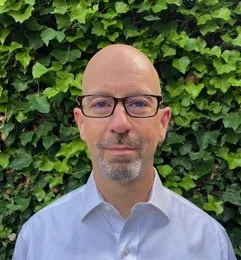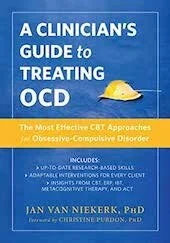About me
Qualifications, professional registration and positions held
I qualified as a clinical psychologist in 1995. I worked as a locum clinical psychologist in the NHS in Cambridge from 2001 to 2002, and as a chartered clinical psychologist from 2003 to 2009. In my final year of employment in the Cambridgeshire and Peterborough NHS Foundation Trust, I was a Principal Clinical Psychologist working in a secondary care service in Adult Mental Health. You can see details of my registration on the websites of the Health and Care Professions Council and the British Psychological Society. I have the following qualifications:
BA Hons in Clinical Psychology (University of Stellenbosch)
MA in Clinical Psychology (University of Stellenbosch)
MSc in Health Psychology (University College London)
PhD (University of Cambridge; member of Clare College)
Statement of Equivalence in Clinical Psychology (British Psychological Society)
Certificate in Cognitive Therapy (Beck Institute, Philadelphia: one year extramural programme)
Diploma in Applied Clinical Neuropsychology (Insititute of Psychiatry, King's College London)
Clinical experience
Over my years in practice, I have worked on a wide range of psychological problems with my adult clients, including depression, bipolar disorder, post-traumatic stress disorder (PTSD), panic attacks, agoraphobia, health anxiety, obsessive-compulsive disorder, social anxiety, phobias, stress-related problems, insomnia, relationship problems and generalised anxiety and worry.
Cognitive-behavioural therapy (CBT)
The psychotherapy approach that I specialise in is called cognitive therapy, or cognitive-behavioural therapy. I have experience in using techniques and strategies from various newer developments in CBT, including schema-focused therapy, mindfulness-based cognitive therapy, metacognitive therapy, inference-based therapy and acceptance and commitment therapy (ACT); I have published articles on CBT in scientific journals.
I believe in offering a friendly and supportive environment for working in a time-limited, focused way with my clients to actively address problems in their lives, by understanding and modifying unhelpful patterns of thought and behaviour, and helping them to maximise their potential. (Open-ended involvement, such as non-directive counselling, may well be a legitimate option, but this is not something I provide). Trauma and past experience, sometimes in childhood, are important in as far as they have contributed to the development of detrimental underlying attitudes and narratives about the self and others, negative thinking styles (such as worry and rumination), coping and attentional strategies that backfire, and self-defeating patterns of communication and behaviour; these become important focus areas in therapy.
I have also had training in systemic family therapy approaches, which inform my work. I draw on experience in the field of neuropsychology, neuroscience and health psychology for an understanding of biological factors in mental health and the role of psychological factors in medical conditions. I passionately believe in the importance of paying attention to the background factors that may contribute to mental health problems, e.g. an unhealthy lifestyle.
Treatment for obsessive-compulsive disorder (OCD)
I specialise in the treatment of OCD, and have an interest in related conditions, such as health anxiety and obesssional jealousy.
OCD is characterised by: 1) the experience of obsessions — repetitive, intrusive, unwanted thoughts that cause you to feel anxious or experience emotional discomfort; and 2) performing compulsions or rituals — mental or behavioural acts to try to reduce the anxiety caused by obsessional fears, set things right, or neutralise your obsession; or 3) avoidance of obsession triggers. Examples of obsessions and compulsions can be found on the OCD-UK website.
At the present time, several divergent treatment approaches exist under the broad heading of CBT for OCD, although they have overlapping features which define them as CBT. I am not wedded to any one protocol, instead believing in being flexible, practical and scientifically-minded and tailoring the approach to the person.
I was an NHS Clinical Academic Postdoctoral Fellow from 2009-2014, doing research in psychological treatment for OCD. During this time I was a visiting researcher in the Department of Psychiatry, University of Cambridge, and collaborated with researchers in London and at the Fernand Seguin Research Centre in Montreal, Canada. I have also collaborated in other research studies in OCD at Cambridge University.
My self-help book, Coping with Obsessive-Compulsive Disorder (Oneworld, Oxford, 2009), is listed on the websites of OCD-UK, OCD-Action, the National OCD Foundation, and the Centre for Cognitive Therapy, University of Pennsylvania, School of Medicine. The treatment strategy integrates standard CBT approaches with inference-based therapy (a form of cognitive therapy for OCD). (Check library availability here).
I have also written an OCD treatment guide for professionals, A Clinician's Guide to Treating OCD (New Harbinger, Oakland, 2018). A Russian translation is available from Dialektika, based in Kyiv, Ukraine; and a Turkish version will be available shortly. I was an associate at the Cambridge Clinical Research Centre for Affective Disorders for the duration of this book project. (Check library availability here).
Supervision and lecturing experience
I regularly meet with other clinical psychologists for peer supervision, and I have benefited from CBT supervision by international experts, Cory Newman, PhD, and Christine Padesky, PhD. I have contributed to lecturing on CBT and psychological disorders to undergraduate students at Cambridge University, trainee clinical psychologists on the DClinPsych courses at the University of East Anglia (UEA) and the University of Essex, and doctors on the Cambridge MRCPsych course. My supervision experience includes 8 years of acting as supervisor for UEA DClinPsych trainees on adult mental health / specialist CBT placements.
Occupational health services
I also offer psychological services to occupational health departments of organisations in both the public and private sectors. Current clients include the University of Cambridge and Addenbrooke's NHS Foundation Trust. I provide training events and assessment and treatment, as required, for management and employees.



